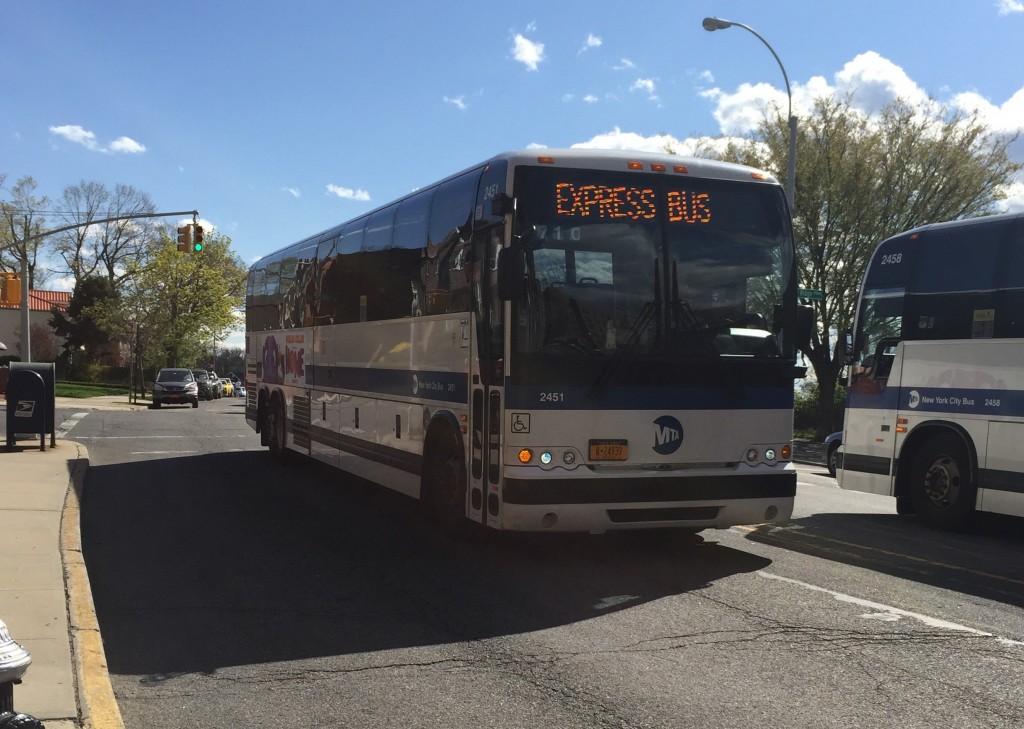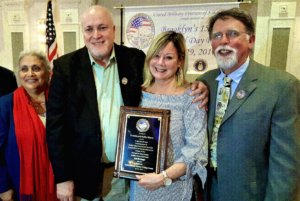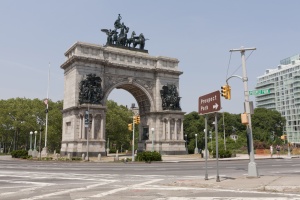Citywide express buses might be deserving of their bad rap, says New York City Comptroller Scott Stringer.
An audit released by the comptroller on Thursday, April 23 found that express buses run by the Metropolitan Transportation Authority (MTA) – especially those leaving from Bay Ridge – ran late more than 30 percent of the time from October through December, 2013, leaving riders in the dust at $6.50 a ride.
“We live in the greatest city in the world and we need a mass transit system that reflects that,” Stringer said, stressing that millions of New Yorkers rely on express buses each year. “When one out of every three buses is not on time, it impacts every borough and hits at our city’s economic competitiveness. New York City already has the longest workday in the country – our express buses should be a part of the solution, not the problem.”
According to the audit, the vast majority of late departures occurred during the afternoon rush. Brooklyn routes (most notably the Ridge’s X27 and X28) rank among the worst, with 36 late departures from Manhattan, second only to Staten Island’s X1 and X17 buses which ran either ahead of or behind schedule close to 36 percent of the time.
The audit also found that commuters waited anywhere from six to 28 minutes after a scheduled departure time for the next available bus – an estimate Ridgeites and Staten Islanders agreed has only increased since the study was done.
“The most I’ve waited was an hour after it was due,” said Bay Ridge resident and daily X27 rider Laura Maguire, “and that’s frustrating because the whole reason you’re paying the extra money is because of the convenience of the bus.
“It defeats the purpose when every day you have to deal with delays that can exceed 45 minutes,” she went on. “In the end, it might not even be worth the money.”
Alyssa DeSantis, a Staten Island rider who commutes to the city via the X1 five to six times a week, agreed.
“The express bus is very inconsistent and makes it difficult to plan out your day,” she said “It’s frustrating that the schedule stays unreliable while the cost continues to increase. There needs to be clear communication for bus riders and more frequent trips.”
Stringer’s study examined timeliness, wheelchair functionality and customer satisfaction relating to express buses and also found that delays make up nearly 40 percent of all express bus complaints.
In addition, Stringer noted, the MTA has failed to establish on-time performance targets for express buses, not even tracking on-time performance on a regular basis until the 2014 launch of an online tracker called Real Bus Time.
“Our goal with all of our buses is to achieve faster travel times, more evenly spaced arrivals, and overall better service for customers,” said MTA spokesperson Kevin Ortiz. “Buses are scheduled in accordance with MTA Board-approved loading guidelines that are based primarily on customer demand. We conduct regular ridership reviews of bus routes to ensure that they operate within guidelines.
“While we use On-Time Performance (OTP) data internally to assist us in benchmarking our service management and schedule making, OTP is not the best measure of the customer experience so we focus more on the evenness of service, or wait assessment: In other words, how long a customer waits for a bus,” Ortiz went on.
The MTA, he added, intends to pursue the same course going forward. “Wait assessment is what we will continue to focus on, not OTP,” said Ortiz, “because customers generally arrive at their boarding locations at a continuous rate and their primary concern is that we have even service, not if specific buses are meeting their scheduled times. In addition, there are other extraneous factors such as traffic and road conditions that we unfortunately have no control over.”
But, change is needed, contended Stringer. “Living in Rosedale, New Dorp, Bay Ridge or Co-Op City shouldn’t mean you get less reliable and efficient mass transit,” he said. “There’s a real human cost when long commutes separate people from their jobs and families and it’s one our city can’t afford.”

 Generally Speaking: Bay Ridge resident named Brooklyn surrogate, Memorial Day Parade-ers honored
Generally Speaking: Bay Ridge resident named Brooklyn surrogate, Memorial Day Parade-ers honored  Captain America celebrates 75th birthday with statue in Prospect Park
Captain America celebrates 75th birthday with statue in Prospect Park